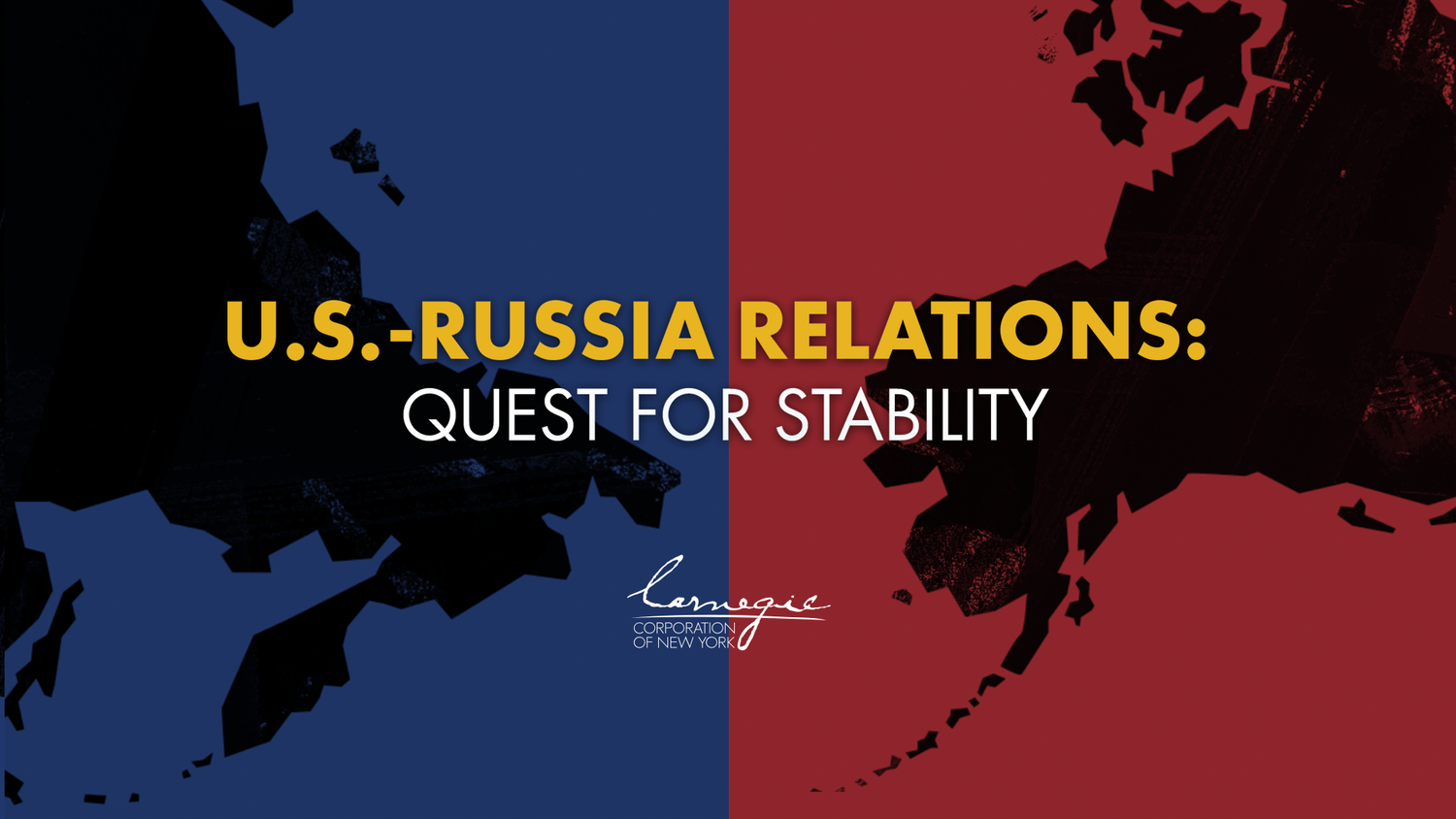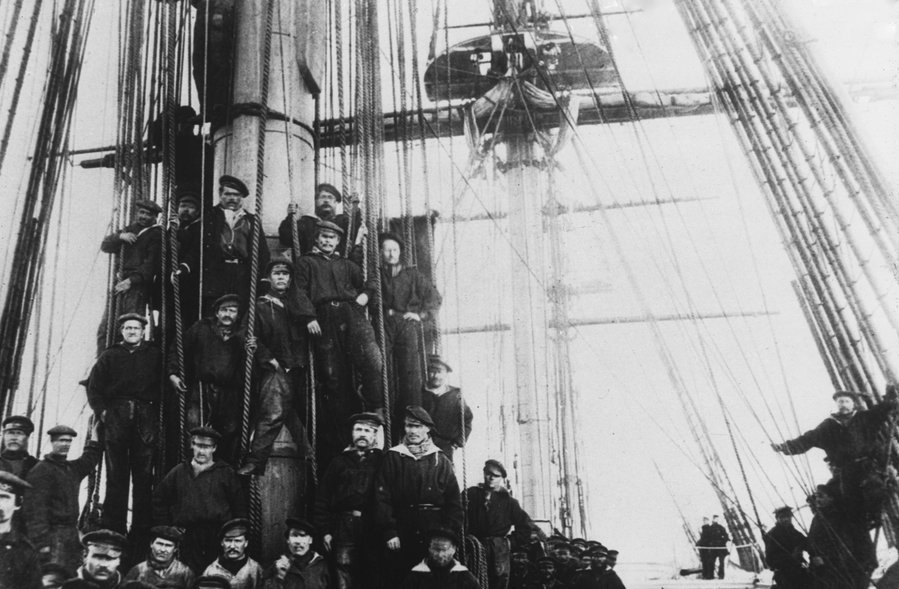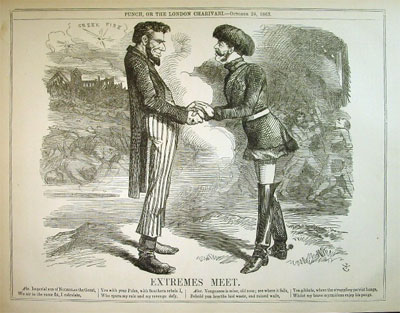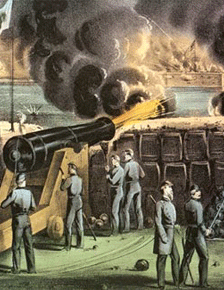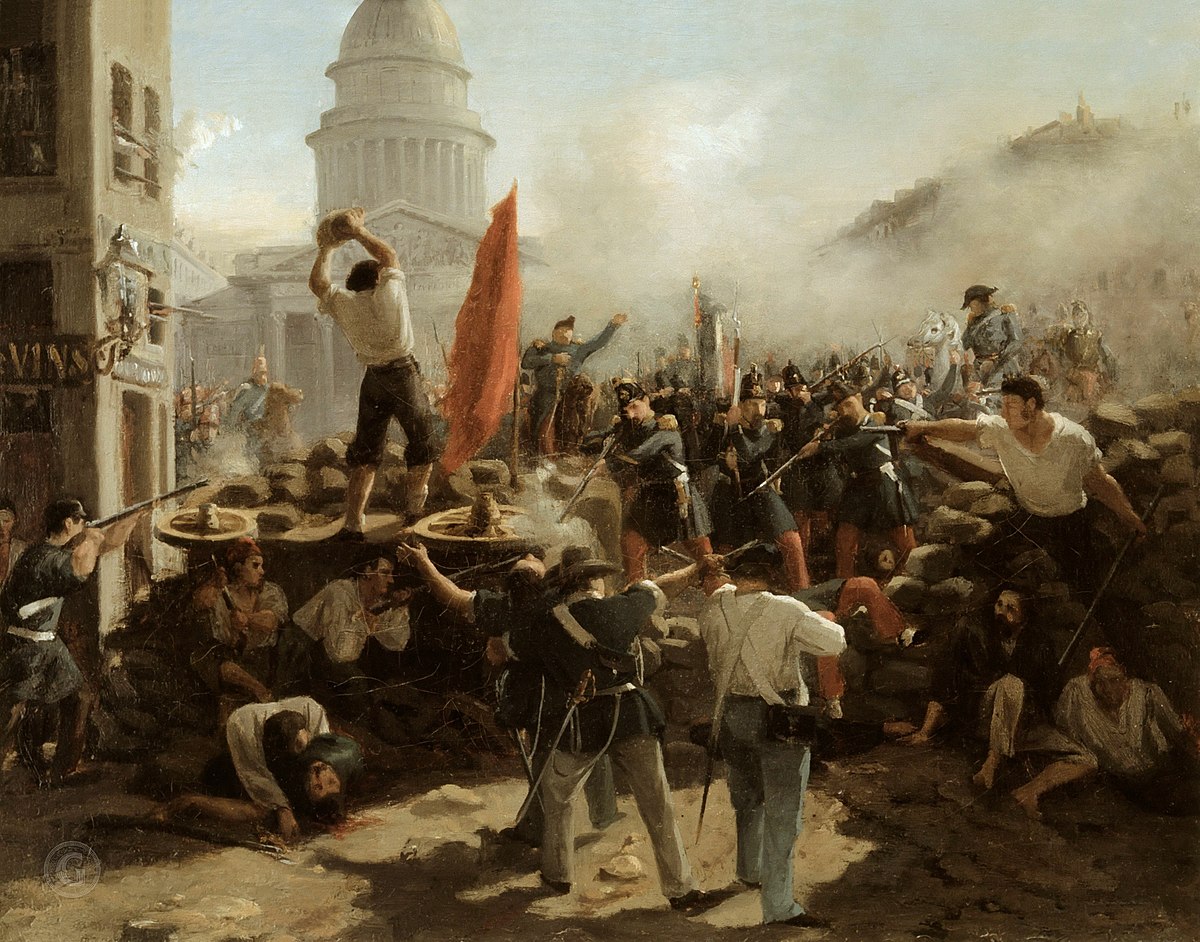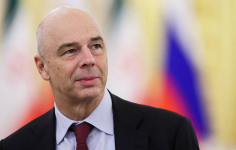- Messages
- 18,248
- Reaction score
- 10,992
- Points
- 288
History they forgot to teach in school...
SEPT 12 2013
C.DOUGLAS KROLL
During the fall of 1863, the darkest hour of the Civil War, part of the Russian fleet arrived at the ports of New York and San Francisco. In this new history column, Professor C. Douglas Kroll talks about the visits and their significance.
Many Americans are surprised to learn that until the early 20th century, the United States had better relations with Russia than with Britain or France. The United States had fought two bitter wars against Britain: the War of Independence and the War of 1812.
Additionally, the two nations endured many years of tension without war, mostly related to border issues in North America, where Canada remained British territory. During the American Civil War, the British government’s sympathy seemed to be with the Confederacy and there was great concern in Washington that the British would give enter the war on the side of the South.
The United States had its share of difficulties with France as well. While France had been a vital ally of the young nation during its War of Independence, relations deteriorated shortly afterward.
In 1793 the United States quarreled with France about neutrality and then fought a brief, undeclared war in 1798. By the time of the Civil War Americans were complaining about the French occupation of Mexico and that regime’s conduct toward Confederate rebels.
By contrast, the United States had never had a quarrel with Imperial Russia, and, in fact, the relationship was characterized by peace and goodwill. Empress Catherine II (the Great) refused to send Russian soldiers requested by King George III to suppress the rebellion of his subjects in North America.
Emperor Alexander I helped mediate a peace between the United States and Britain to end the War of 1812. In 1832, Russia became the first nation to have “most favored nation” trading status with the United States. The United States alone stood by Russia in 1854 and 1855 during the Crimean War.
The American government furnished Russian forces with arms and sent a whole shipload of gunpowder to the defenders of the Siberian coast. Frank Golder, no Russophile, would later write of the Crimean War, “By the time it was over the United States was the only nation in the world that was neither ashamed nor afraid to acknowledge boldly her friendship with Russia.”
more:
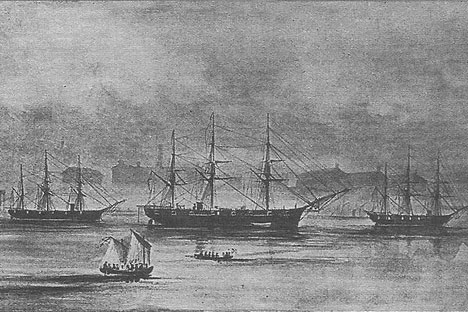
 www.rbth.com
www.rbth.com
When the Russian navy sailed into New York
HISTORYSEPT 12 2013
C.DOUGLAS KROLL
During the fall of 1863, the darkest hour of the Civil War, part of the Russian fleet arrived at the ports of New York and San Francisco. In this new history column, Professor C. Douglas Kroll talks about the visits and their significance.
Many Americans are surprised to learn that until the early 20th century, the United States had better relations with Russia than with Britain or France. The United States had fought two bitter wars against Britain: the War of Independence and the War of 1812.
Additionally, the two nations endured many years of tension without war, mostly related to border issues in North America, where Canada remained British territory. During the American Civil War, the British government’s sympathy seemed to be with the Confederacy and there was great concern in Washington that the British would give enter the war on the side of the South.
The United States had its share of difficulties with France as well. While France had been a vital ally of the young nation during its War of Independence, relations deteriorated shortly afterward.
In 1793 the United States quarreled with France about neutrality and then fought a brief, undeclared war in 1798. By the time of the Civil War Americans were complaining about the French occupation of Mexico and that regime’s conduct toward Confederate rebels.
By contrast, the United States had never had a quarrel with Imperial Russia, and, in fact, the relationship was characterized by peace and goodwill. Empress Catherine II (the Great) refused to send Russian soldiers requested by King George III to suppress the rebellion of his subjects in North America.
Emperor Alexander I helped mediate a peace between the United States and Britain to end the War of 1812. In 1832, Russia became the first nation to have “most favored nation” trading status with the United States. The United States alone stood by Russia in 1854 and 1855 during the Crimean War.
The American government furnished Russian forces with arms and sent a whole shipload of gunpowder to the defenders of the Siberian coast. Frank Golder, no Russophile, would later write of the Crimean War, “By the time it was over the United States was the only nation in the world that was neither ashamed nor afraid to acknowledge boldly her friendship with Russia.”
more:

When the Russian navy sailed into New York
During the fall of 1863, the darkest hour of the Civil War, part of the Russian fleet arrived at the ports of New York and San Francisco. In this new...

